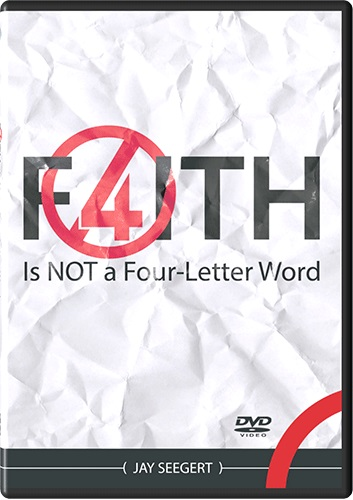Should you share your faith? (Part 3)
|
Two months ago we began a 4-part mini-series which addresses several aspects of this question. As a reminder, here’s the series overview:
|
|
Who is our audience?
This is another question which perhaps seems unnecessary to address, because the answer might be deemed obvious. Our audience would be anyone who is unsaved, i.e. not a Christian, right? Yes, that’s true, and yes, that’s obvious. My specific focus for this article, however, is what we know about this group of people. Not so much from a standpoint of what we might glean from hanging around them and getting to know them better (which can be very helpful), but more-so from what God’s Word tells us about who they are and what’s going on inside. I will simply be hitting a few highlights from Scripture regarding what God tells us about the unbeliever. These elements are crucial for us to keep in mind when considering sharing our faith. Spiritually Blind We learn they are actually spiritually blind: The god of this age (Satan) has blinded the minds of unbelievers, so that they cannot see the light of the gospel that displays the glory of Christ, who is the image of God. (2 Corinthians 4:4) This means that on their own, they are not capable of discerning truth, because of their own sin nature. Our discussions with them are largely spiritually-based, and not raw academic arguments. We should never treat them as simply uninformed. They May Think You’re Crazy Rather than thanking you for enlightening them with such exciting and encouraging information, they will often think you are out of touch with reality. Consider the following: The person without the Spirit does not accept the things that come from the Spirit of God but considers them foolishness, and cannot understand them because they are discerned only through the Spirit. (1 Corinthians 2:14) They are Without Excuse We learn from Romans that the unbeliever is in such a position, not because of the lack of knowledge, but because God has already given them plenty of evidence and has Himself instilled in them the very knowledge that He does exist, but they have chosen to ignore this. They don’t reject God because of their superior intellect, but specifically, because of their sinful nature: The wrath of God is being revealed from heaven against all the godlessness and wickedness of people, who suppress the truth by their wickedness, since what may be known about God is plain to them, because God has made it plain to them. For since the creation of the world God’s invisible qualities—his eternal power and divine nature—have been clearly seen, being understood from what has been made, so that people are without excuse. For although they knew God, they neither glorified him as God nor gave thanks to him, but their thinking became futile and their foolish hearts were darkened. Although they claimed to be wise, they became fools. (Romans 1:18-22) They perceive themselves to be very wise, but God says their thinking is actually foolish. He’s not simply resorting to name-calling when He says, “they became fools”… He’s describing their thinking process in general. The majority of skeptics I meet are plenty “smart”, so I never approach them with an attitude of “If they only knew what I knew, then they’d realize I’m right and they’re wrong.” (I tried that approach when I first got started in apologetics 31 years ago. I’ll save you some time… it doesn’t work and it’s not very respectful.) |
|
As I’ve written in previous articles and present in many of my talks, it’s not really about the “facts”, since facts don’t speak for themselves. They all have to be interpreted to give them any kind of real or significant meaning. The way we interpret facts is by using what we already believe… our “starting point”. (Just another reason why we changed the name of our ministry.) A better approach than just throwing facts back and forth, is to demonstrate that the Christian worldview (or starting point) is the only one capable of consistently and accurately making sense of facts we observe in the world around us.
If you want further assistance in using this approach, I would highly recommend our “Faith is Not a Four-Letter Word” DVD. Next month (Should you share your faith? Part 4) we will be wrapping-up this mini-series by addressing the question “How do we go about sharing?” We will provide a lot of very important, practical advice to help you be as effective as possible in your evangelism! In the meantime, if you have any questions about this or any other issue, please don’t hesitate to contact us! To print a copy, view PDF file. |



